A son recalls César E. Chávez’s legacy of ‘wealth’ in providing hope for farmworkers
Naming a 10.2-mile stretch of city streets in honor of his father makes sense because it would connect Avenida César E. Chávez with Martin Luther King Jr. Boulevard, said Paul Chávez after commemorating the farmworker leader at Fresno State on Wednesday.
“I’m excited that it’s come up,” said Chávez, chairman of the César E. Chávez Foundation, about a Fresno City Council decision to rename California Avenue, Ventura Avenue and Kings Canyon Road.
The council, which voted 6-1 earlier this month for the name change, is expected to take a final vote on Thursday (March 30), the day before what would have been the United Farm Workers founder’s 96th birthday. The labor leader died in 1993.
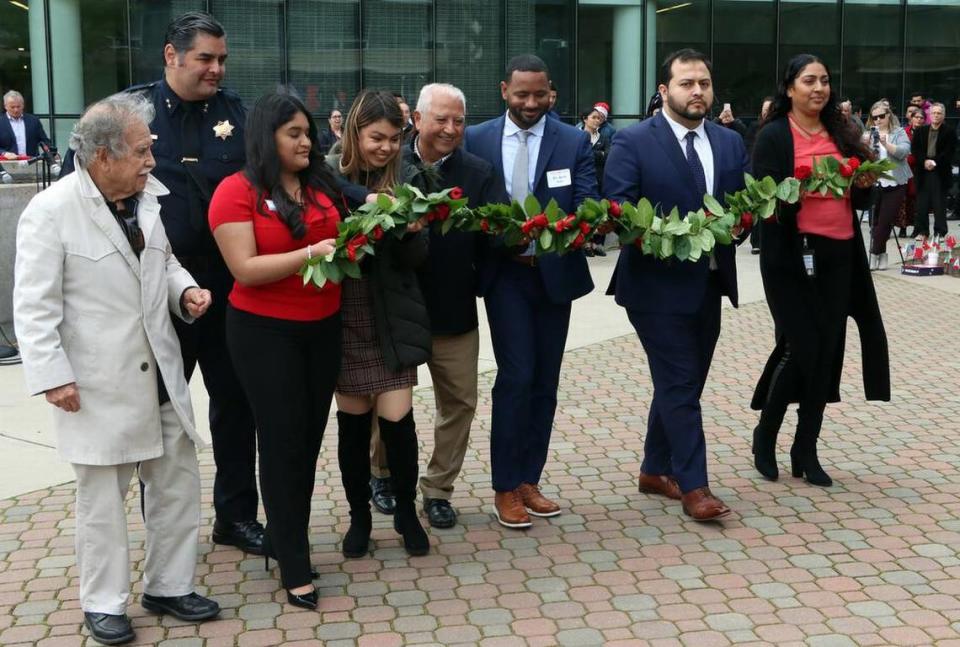
“It’s more than my dad. It’s for all of those people who worked with him and that struggled against tremendous odds,” said Chávez. “So I see it as a way of validating those selfless people that gave so much of themselves to build the union for farmworkers.”
The council renamed the streets César E. Chávez Boulevard in 1993, only to rescind the name change a few months later following public pressure.
There has been opposition from the African American community in southwest Fresno who wish to keep California Avenue. Others who showed up at a March 9 council meeting to express opposition said there was a lack of outreach by the council. Some also said the name change would eliminate the history of other ethnic groups like the Armenians.
Chávez, who was the invited speaker at the Fresno State celebration in the Peace Garden, said the name change “is a way to right a wrong that was committed many years ago.”
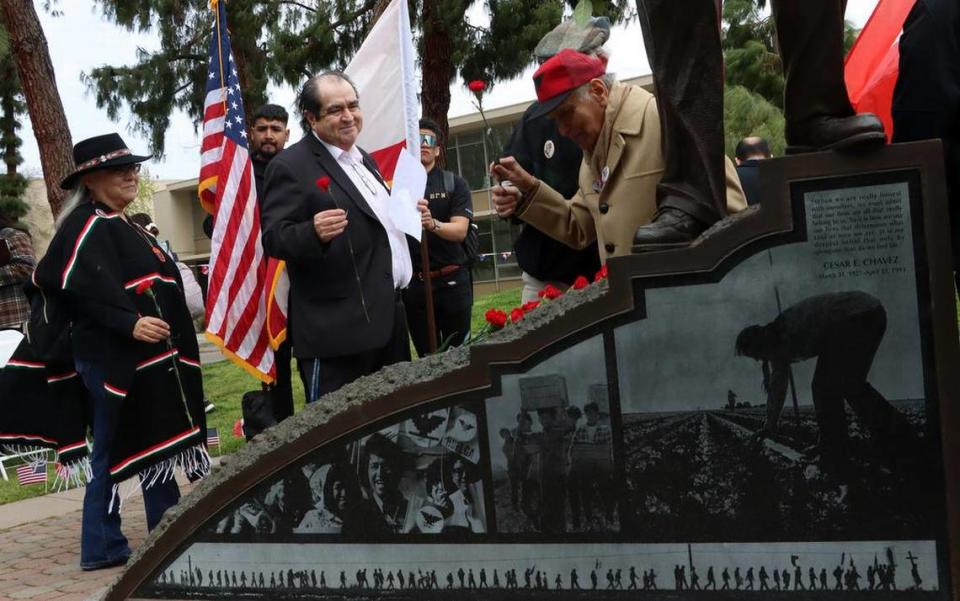
Every community, he added, “should decide how to honor my father’s legacy.”
Fresno has played an integral part in UFW history. The inaugural UFW convention was held at the Edison Social Club in southwest Fresno. Since then, the union has held other conventions in the Central Valley’s largest city.
“People from the community have proposed this,” said Chávez. “It’s heartwarming, and we’re excited about it.”
In his 8½-minute talk just feet away from a bronze statue of his father, Chávez remembered his dad, who died on April 23, 1993 at the age of 66, as small in stature and not having a booming voice as many pictured him.
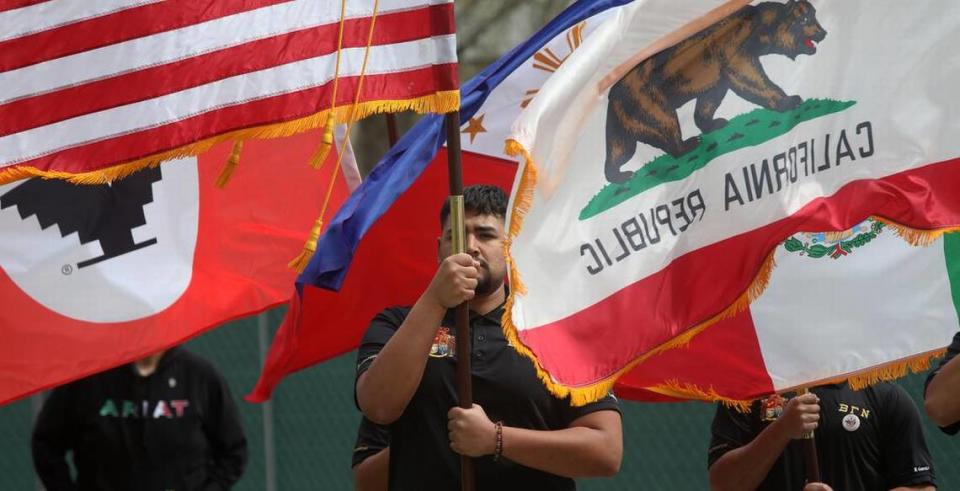
His father also shied away from individual recognition.
“Like what we’re doing today, commemorations and community celebrations are held in small towns and major cities across the nation,” he said. “Every year, there’s 11 states and many cities and school districts that recognize his birthday as a holiday.”
Chávez noted many streets, parks, schools and other public spaces “grace his name.”
The U.S. has named a Navy vessel and a national monument after him.
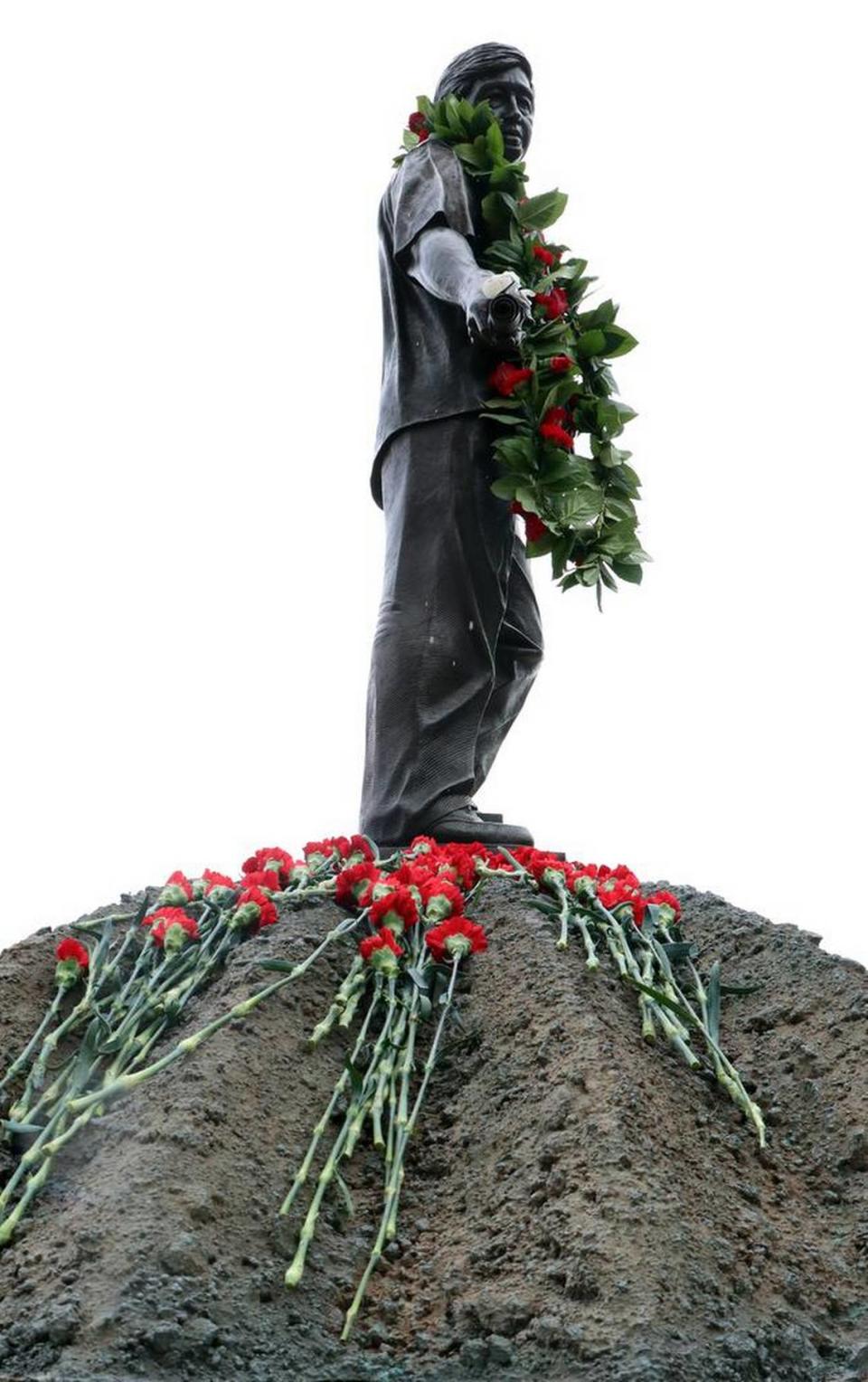
“Those who knew my dad and worked with him remember that he was always uncomfortable being singled out for praise,” said Chávez. “He was uncomfortable because I think he knew that there were many people that made tremendous sacrifices against insurmountable odds and whose contributions are largely lost to history.”
It is those UFW pioneers, many of them farmworkers, that his father tried to organize against “an unjust system in which the men, women and children who harvest the greatest bounty of food that this nation has ever seen all too often didn’t have enough for their own tables,” said Chávez.
Throughout his time leading the movimiento, said Paul Chávez, his father never earned more than $7,000 a year.
“He didn’t own a house; didn’t own a car,” he said. “When he died 30 years ago at the age of 66, he left no patrimony. He left no money to his family.
“Yet, more than 50,000 people marched behind his plain, pine coffin in the funeral procession in Delano.”
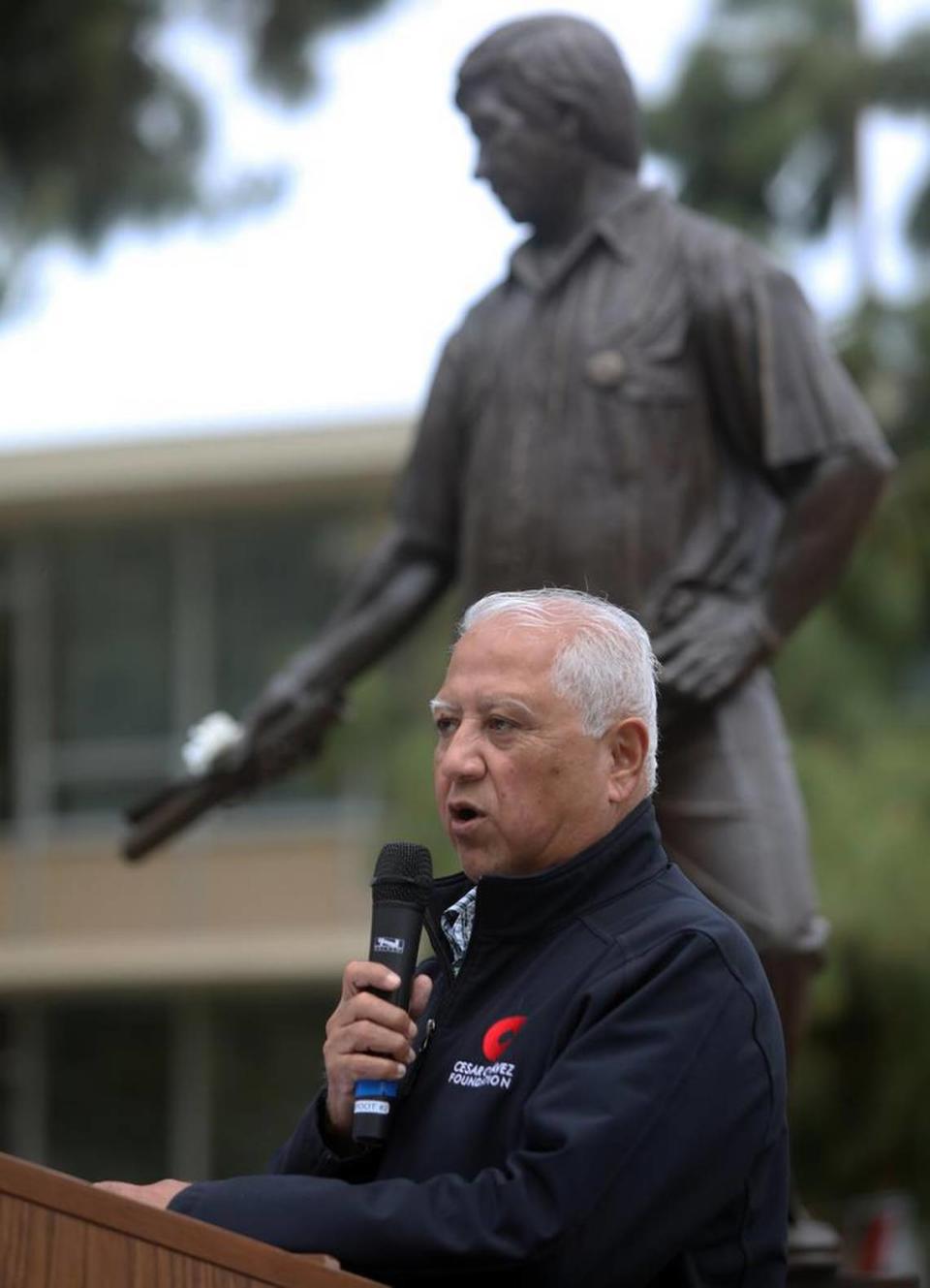
Chávez recalled his father’s eulogy 44 years ago for Rufino Contreras, who was slain during a bitter lettuce strike in the Imperial Valley.
“He talked about a person’s legacy, about what we leave behind. He said true wealth is not measured in money or status or power; that it’s measured in the legacy we leave behind for those we love and those we inspire.”
His father gave up “the only good-paying job he had” in 1962 to leave East Los Ángeles and move to Delano to start organizing farmworkers, said Chávez.
“During the 31 years that he led the farmworker movement, César Chávez suffered more defeats than victories,” he said. “Yet after each time that he was knocked down, he would pick himself up off the ground.”
His father, said Chávez, realized that “in the fight for justice, you only lose when you stop fighting.”
“Let’s be thankful for that courage and faith and inspiration that his legacy continues offering us today,” said Chávez. “By doing this, we can all agree that César Chávez was a truly wealthy man.”

